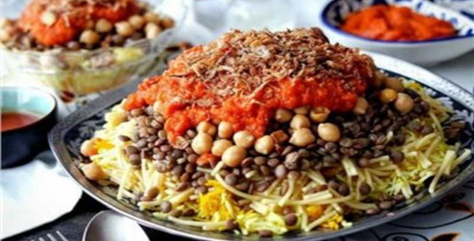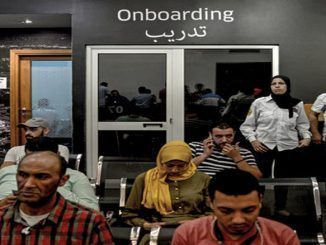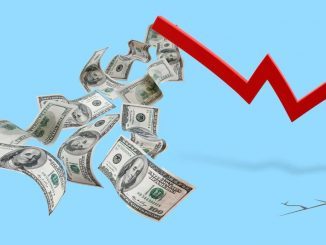
With food prices rising rapidly in the face of a growing economic crisis, even the most low-cost meals, like “Koshari” are becoming more expensive to make or afford for.
Koshary is a mix of pasta, rice, lentils, chickpeas, fried onions and spicy tomato sauce, koshary is one of the cheapest and most popular foods in Egypt, so packed with carbs and protein that it can keep even the hungriest customers full all day. Everyone here eats it — from the richest of the rich to the poorest of the poor.
“Just when Egypt hoped to recover from the pandemic, which saw its massive tourism sector essentially grind to a halt, Russia invaded Ukraine. The war set off a series of unexpected repercussions across the region, hitting Egypt particularly hard,” according to a report published by the Washington Post.
Furthermore, “Foreign investors withdrew billions of dollars from the country within weeks of the invasion, unsettling the economy. Egypt also imports more wheat than any other country — most of it from Russia and Ukraine. The cost of wheat and oil began to soar while tourism numbers dropped again because of a longtime reliance on Russian and Ukrainian visitors.”
Food and drink prices have increased by 30.9 percent since this time last year. Earlier this year, the official exchange rate was once 15.6 to the dollar. Now it sits at 24.7. On the black market, one dollar can be sold for as many as 33 pounds. Banks are limiting the withdrawal of dollars to try to keep cash in the country. Many Egyptians are forgoing indulgences — from avoiding dining out to postponing weddings — hoping costs might soon go down.
To blame the crisis solely on the war in Ukraine would be “barely true,” said Egyptian political economist Wael Gamal. Years of borrowing and investment in megaprojects made Egypt especially vulnerable, he said. Those projects have been championed by Abdel Fatah El-Sisi, who took power in a military coup in 2013 and has made infrastructure development a hallmark of his presidency.
In December, after months of negotiations, Egypt announced it would receive a $3 billion loan from the International Monetary Fund — including $347 million that will be disbursed immediately. It is the fourth time the IMF has assisted Egypt in the past six years.
Egypt’s economic troubles become “deeper every time they go to the IMF and take more loans and cover older loans with new loans,” Wael Gamal said.
In the upper-class neighborhood of Zamalek, an island on the Nile, Ahmed Ramadan, 27, serves around 700 orders of koshary and other takeaway meals each day. Most of his customers are students and working-class employees who commute there each day.
Compared with others in his low-income neighborhood of Imbaba, Ramadan considers himself lucky. He has steady work and can walk to the koshary restaurant in Zamalek each day without worrying about rising transport costs. For his neighbors, “the situation has gotten worse and worse,” he said. “They have to make ends meet and eat just vegetables and rice. What can they do?”
Supply costs have gone up so much that a few weeks ago his restaurant stopped serving its cheapest portion of koshary — covering up the option on their menu with a piece of tape. Until recently, Ramadan said, he could buy a ton of rice for around 8,000 Egyptian pounds. Now, he said, it costs 18,000 pounds. The cost of his pasta supply has jumped by 6,000 pounds. Even the plastic containers and bags used to package the meals are pricier than before.
Story continues below advertisement
But customers are still showing up. “People have to eat,” he said.
Nearby, in the neighborhood of Agouza, Medhat Mohamed, 47, stood behind the counter of a roadside restaurant that sells taameya (Egyptian falafel) and fuul (stewed bean) sandwiches. Both are vegetarian staples in the Egyptian diet, but customers are starting to make do without, Mohamed and his co-workers said.
A year ago, the sandwiches sold for three and a half pounds. Now they cost four and a half.
“The war in Ukraine caused the prices of flour and oil to increase,” Mohamed said. “When that increased, everything else increased.”
Now, some poorer customers buy pieces of falafel rather than a sandwich, putting it in bread they get through a subsidy program, just to save a few pounds.
Story continues below advertisement
Even if the restaurant doubled its prices, the shop’s manager, Sayyid el-Amir, said, “we wouldn’t be making much of a profit.”
A lot of other shops are closing, he said, but he would do everything he could to avoid layoffs. “Any of these workers has three to four children,” he said, pointing at Mohamed and the other men, including one tossing raw falafel into a bubbling pan of oil. All the restaurant’s employees also have other jobs, making deliveries or working in other restaurants.
“It’s a wonder how people survive,” he said.



